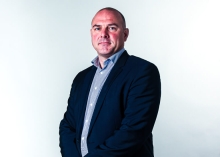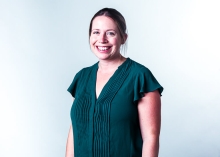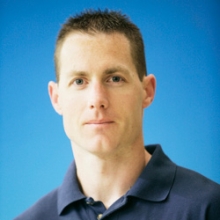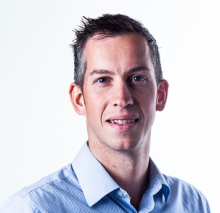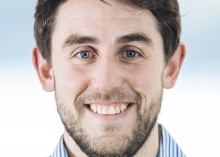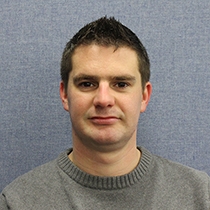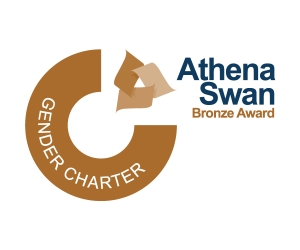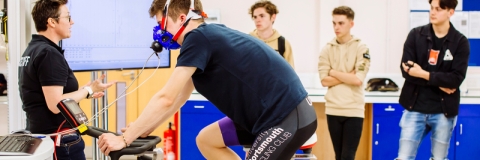
School of Sport, Health and Exercise
Overview
The School of Sport, Health and Exercise Science is a vibrant interdisciplinary School within the Faculty of Science and Health. We study the physiology, psychology and biomechanics of the human body during exercise and its application to sports performance and health as well as development and management of sport and the role of sport in society.
We examine the role of physical activity in health and disease, strategies for increasing participation in sport and physical activity, and approaches to optimising human performance. Our discipline covers the entire lifespan, from childhood to master athletes and we study individuals across the performance spectrum, from Olympic athletes to those undertaking physically demanding occupations, or individuals with chronic diseases where exercise is medicine.
Our outstanding educational, research and innovation activities are supported by our laboratories – such as the Extreme Environments Laboratory – and our unique testing facilities including the sports and human performance testing unit and sports bra testing unit. The School has received funding for its excellent research from many notable organisations, including charities, governing bodies, health groups, industry, defence and research funding bodies.
School of Sport, Health and Exercise Science Facilities Tour
Discover the cutting edge equipment our academics use in their ground-breaking research and what you'll access during your studies.
Dr Matt Miller-Dicks
The facilities here at the University of Portsmouth are state of the art facilities.
Dr Joe Costello
They give us a unique capability and all of our students and our staff get to use these facilities, which they may not have an opportunity to use elsewhere.
Dr Timothy Exell
Within the School of Sport, Health and Exercise Science, we've got an excellent biomechanics lab, and within that lab we have cutting-edge motion capture technology - that allows us to measure people's movements when they're doing different sports activities. EMG sensors to measure muscle activity, and also pressure mats that can be integrated within the system.
Dr Zoe Saynor
We've got our physiology labs where we measure everything from lung function to vascular health, so the blood vessels and we can do in-depth studies of muscle function across the lifespan.
Dr Ant Shepherd
We can look at the small blood vessels, the large blood vessels, the whole transport of oxygen from the mouth, all the way through to the muscle, all the way back out the body.
Harry Ramsey
We use the mobile eye-tracking device here to assess decision making and anticipation within the area of skill acquisition.
Dr Matt Miller-Dicks
This is completely portable technology that people can wear whilst going about everyday activities, but often in our case the interest is application to sport.
Harry Ramsey
We can see where players are looking when they're making decisions or when they're trying to anticipate what an opponent is going to do and see maybe what experts do and how that might differ to what a novice performer does.
Dr Joe Costello
We've got unbelievable facilities here in our extreme environment laboratory. We have three chambers that can, in effect, recreate or simulate any environment in the world. Here behind us, we have a swimming flume where we can control the water temperature and also the speed at which people can swim.
Dr Timothy Exell
We're able to bring all of that technology together to measure all of these different things at the same time, to build up a holistic picture of an athlete's performance.
Dr Ant Shepherd
That really helps us with both our teaching and engaging students, all the way through the curriculum and all the way through to postgraduate studies with us.
Dr Timothy Exell
The skills that students learn within our lab facilities, within the school, are directly applied when they go into future careers around strength and conditioning, in sport science support of athletes, but also in clinical careers.
Dr Matt Miller-Dicks
It increases employability opportunities that they have, those first-hand experiences of being able to use the tech and then also apply that technology in practice.
Teaching
We offer a wide range of professionally accredited and research informed courses in the sport, health and Exercise science domain. Both our undergraduate and postgraduate degree pathways reflect the thematic strengths of the school providing an educational platform that bridges the gap between science and application, creating a diverse and comprehensive educational experience for our students.
A degree through our School is more than just a stepping stone – we offer experience in the field of applied science, sports management and collaborative research in the commercial industry and the international community.
Our teaching areas
Sport science courses
A career in the sport and exercise industry – in whatever field you are aiming for – starts with one of our courses in sport and exercise science.
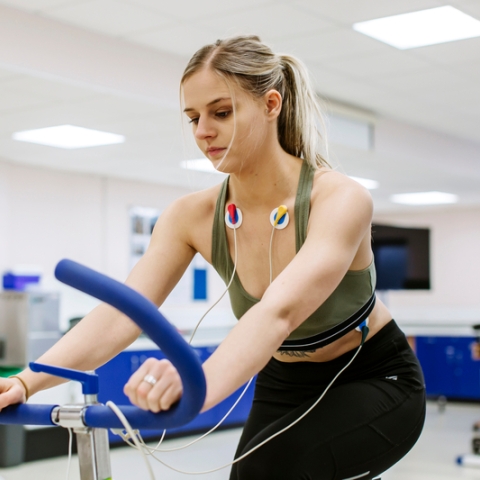
Sport and Exercise Science short courses
Explore the short courses and continuing professional development (CPD) programmes we offer in sport and exercise science.
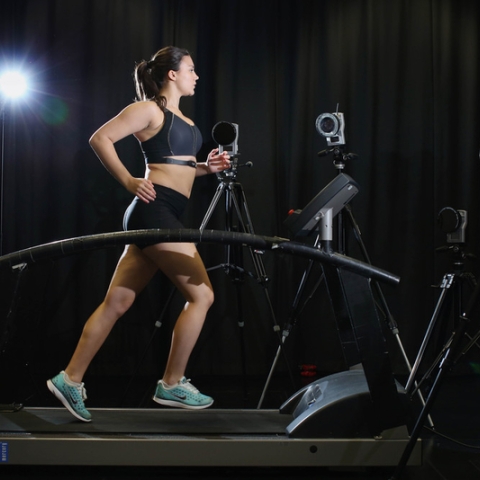
Research
In our submission to the Research Excellence Framework 2021 (REF 2021), 95% of our overall research quality was rated as world-leading or internationally excellent in terms of originality, significance and rigour (REF 2021) and 100% of our research impact case studies were rated as outstanding in terms of their reach and significance. This included research in improving water safety, protecting workers in arduous conditions, and research improving athlete safety and enhancing sports performance in extreme environments.
Explore the work we're doing within our research group and related areas of expertise.
Extreme Environments & Occupational Performance Research Group
Extreme Environments & Occupational Performance Research Group investigates the physiological and psychological responses to adverse environments (e.g. heat, cold, and hypoxia) and the preparation and protection of those who enter such environments.
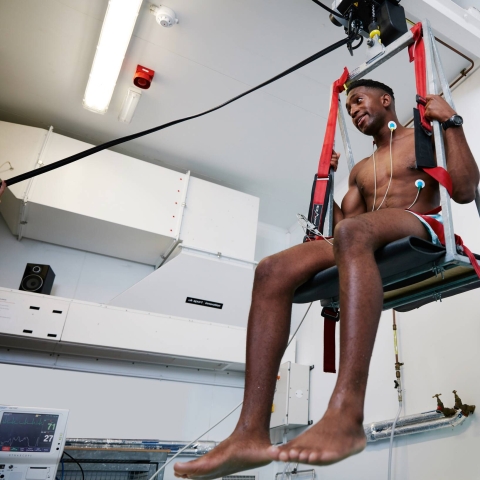
Culture, Behaviour, Inclusivity and Governance
We investigate innovative social science methodologies, laboratory techniques, and longitudinal interventions that provide insights towards performance enhancement and psychosocial development through sport.
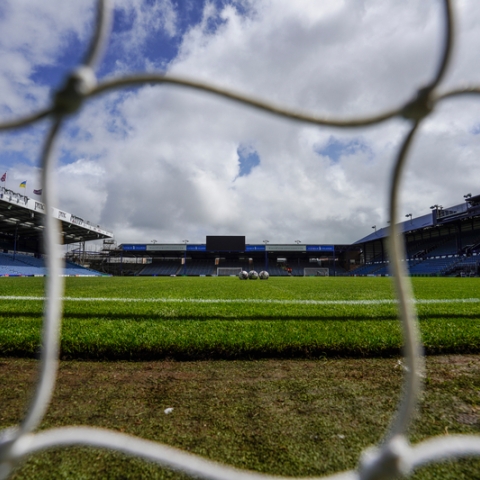
Physical Activity, Health and Rehabilitation Group
We’re conducting research focused on promoting physical activity, rehabilitating individuals facing barriers to activity, and understanding and measuring determinants of health and wellbeing in various contexts.
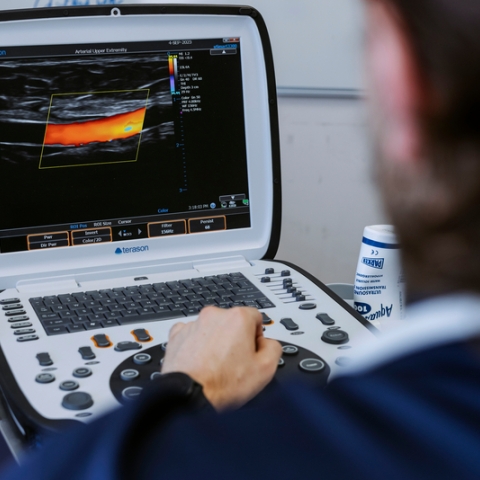
Research in the School of Sport, Health and Exercise Science
Learn more about the groundbreaking research in several key areas and themes being carried out at the School of Sport, Health and Exercise Science.
Dr Joe Costello:
Our research spans the broader area of sport, health and exercise. We have three research themes. The first is Extreme Environments focuses on the selection, preparation and protection of those who enter extreme environments. The second is physical activity, health and rehabilitation. So we focus on clinical and also non-clinical conditions and also how physical activity can help improve the lives of people. Our third and final theme, Individual, occupational and organisational performance looks to see how we can improve the performance of individuals, organisations and teams.
The facilities that I use at the university is our biomechanics lab. The types of equipment that we use is a 3D-camera system. Which allows us to put markers on an individual and track their movement in 3D so we can really look at their movement in detail. We also use force platforms to have a look at the ground reaction forces and also EMG as well, which is Electromyography, which allows us to look at muscle activity and we can track that through different rehabilitation processes.
So the outcomes that I've seen from my research has been improvements in walking speed, for example, which we know is one of the high outcomes of quality of life for individuals who live with stroke. In sort of the preliminary research that we've had a look at, it's looking positive in terms of using different robotic rehabilitations to improve functional outcomes of individuals with stroke.
I'm based with the Extreme Environments Group and they've built a reputation over many years of looking at the physiological responses to all of our different extreme environments. So our heat, our cold and our hypoxia, we can effectively recreate any environment that you would come across on Earth. So we've got a heat chamber that can go up to around about 50 degrees. We've got a cold chamber that can go down to about -20. And then we also have another environmental chamber that contains a flume. And then, all three of those chambers can create a hypoxic environment or simulate altitude so we can go anywhere from sea level to around about 8000 metres. So, we could effectively put someone in a rainforest, in a desert, up the top of Mount Everest.
The facilities and expertise that we have in Portsmouth are among the best in the world. With the heating, we can increase the temperature in the flume and use the mechanism to move people into the flume and control how hot they get by adjusting their position. We have a plunge pool as well in one of the other environmental chambers, and then also we can simply just use normal hot tubs.
In terms of career opportunities, the great thing about the extreme environments work in particular is that often exposure to these extreme environments often mimics clinical conditions. So as well as continuing to be able to offer guidance and work in the areas specific to extreme environments, it also opens up a really nice avenue for you to then go in to work in hospitals, in more clinical populations.
I'm really proud of the research that I do. There's been some particular individuals who wouldn't leave their house at all, even if a member of their family went with them. And now, at the end of their intervention, are happy to walk to the corner shop, even on their own and that has a massive impact on their quality of life, and that's really amazing.
Some of the research that's come out of this school has heavily informed the 'RNLI: Respect the Water Campaign' over the last couple of years, and that's something that makes me passionate to continue working at the University of Portsmouth.
Our staff
We’re an ambitious, collegiate, innovative and caring School. We trust, empower and support individuals to work effectively, either independently or collaboratively.
We strive for a gender balance in our staff, and for professional excellence in all that we do within a community that endorses equality, diversity and an authentic sense of belonging.
Gender equality commitment
At the School of Sport, Health and Exercise Science we hold the Athena SWAN Bronze Award. This represents our commitment to advancing the careers of women in science, technology, engineering, maths and medicine (STEMM) in higher education and research.
Athena SWAN principles are central to the development of our School. They encourage, support and reinforce our evaluation process. This helps us identify areas of equality and inclusivity to work on. We perform annual culture surveys of our staff and research students to monitor how our gender equality aims impact them.
Our aims for gender equality
- Investigate the factors that influence females’ choice of degree and university to increase our recruitment of female students to our undergraduate courses
- Give part-time PhD students a better work-life balance through online support
- Consult our staff on committee membership and career development
- Implement transparent allocation of committee membership
- Make sure, where possible, there's an even gender split for invited speakers at events hosted by our School
- Develop and maintain a school-based Athena SWAN e-learning site to inform our staff of Athena SWAN issues
- Increase the support we give staff returning from parental leave
Explore our faculty
Explore the other Schools and Departments that make up our Faculty of Science and Health.
School of Biological Sciences
In the School of Biological Sciences, we're addressing the most pressing issues impacting people's quality of life around the world.
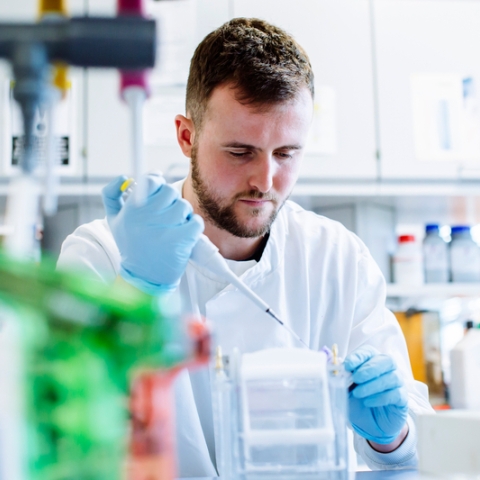
Dental Academy
The Dental Academy is a modern, primary-care based school that trains General Dental Council-registered and qualified dental care professionals, and offers comprehensive oral and dental healthcare to the public.
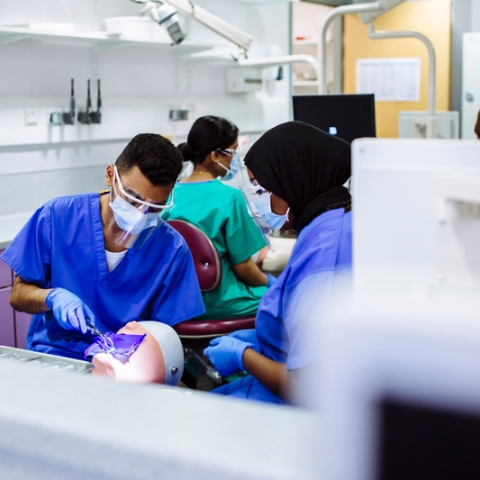
School of Health and Care Professions
The School of Health and Care Professions offers exceptional health and social care education to meet the current and future needs of the health and social care sectors.
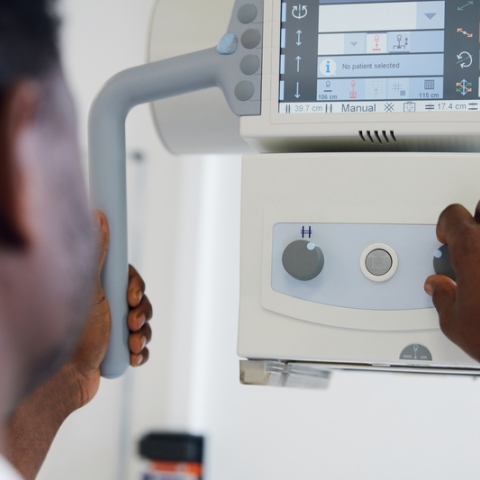
School of Pharmacy and Biomedical Sciences
Through our teaching and research, the School of Pharmacy and Biomedical Sciences strives to find new ways to help those with debilitating illnesses and diseases.
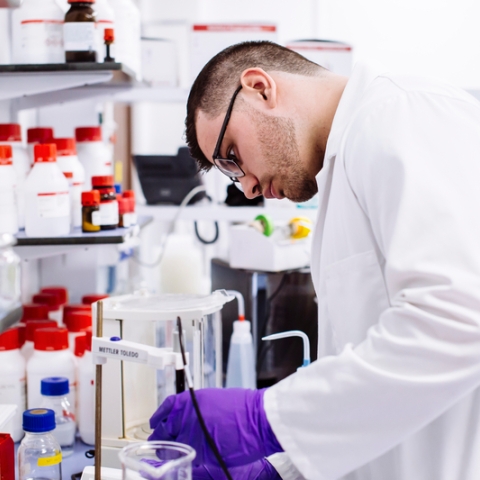
Department of Psychology
Explore the Department of Psychology at the University of Portsmouth, and learn more about the teaching and research activities happening within the department.

Faculty of Science and Health
Explore the Faculty of Science and Health at the University of Portsmouth, and learn more about the teaching and research activities that take place within the Faculty's different departments and schools.
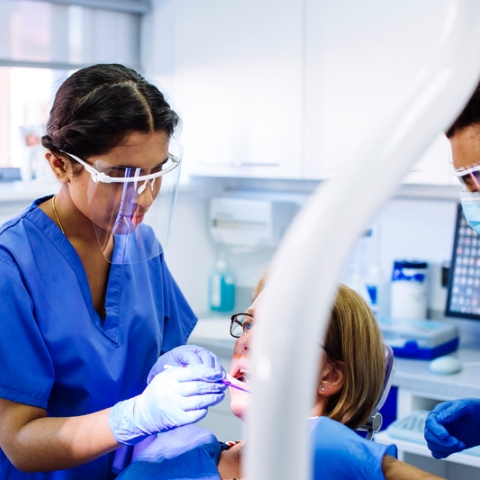
Pulse newsletter
Stay up to date with the latest news from the School of Sport, Health and Exercise Science with Pulse.
Contact us
To get in touch, please contact our Faculty office.

